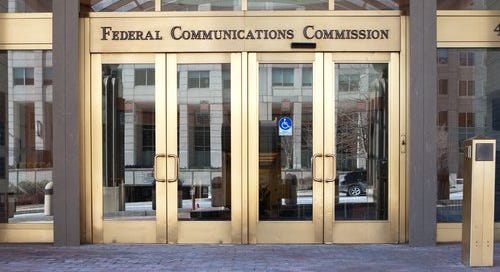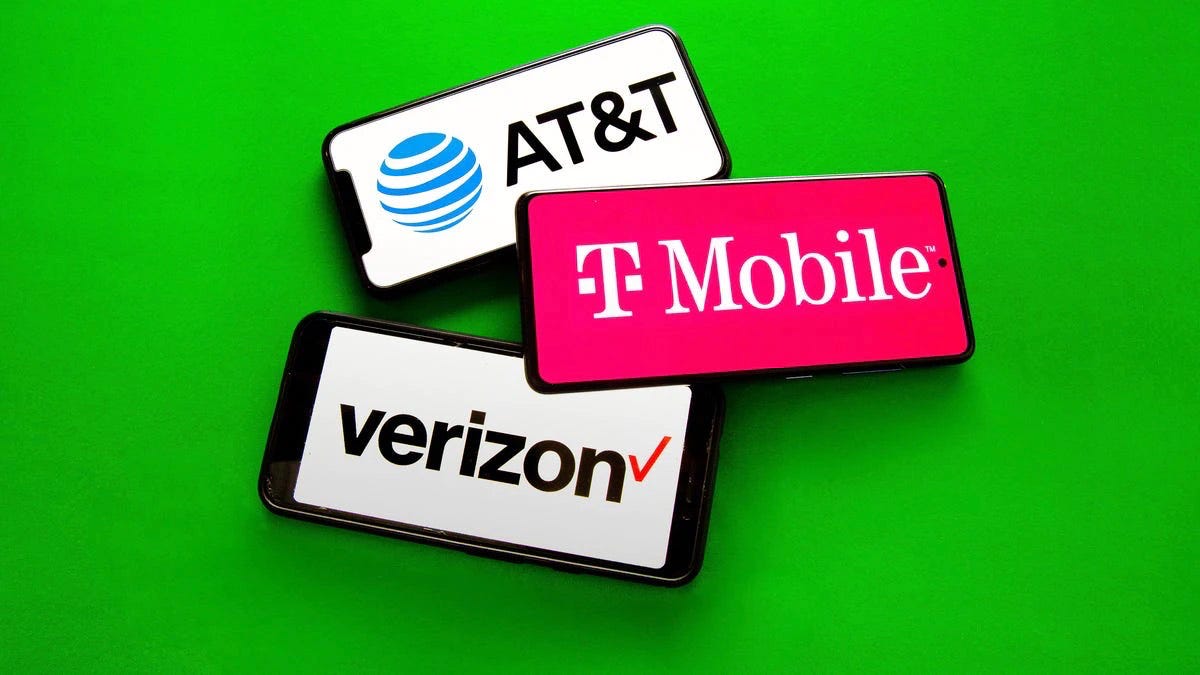A Guest Post from "Crime and Punishment: Why the Poor Stay Poor in America"
Switching Phone Carriers? This Information Is For You
Morning, everyone!
Some of you might remember a guest post I did awhile ago for Joan DeMartin, author of the newsletter Crime and Punishment: Why the Poor Stay Poor in America. This week, Joan was kind enough to write a guest post for The Civic Librarian! Joan does great work. I highly encourage you to go and subscribe to her newsletter here. Without further ado, let’s get to her piece!
It’s Your Number, Take It With You
Switching Phone Carriers? This Information Is For You.
“Once you request service from a new company, your old company cannot refuse to port your number, even if you owe money for an outstanding balance or termination fee.” Federal Communications Commission
A huge thank-you to Audrey Hood, Substack’s own reference librarian, for allowing me to guest post on her wonderful newsletter: The Civic Librarian. I am thrilled that someone with Audrey’s expertise takes the considerable time and effort to focus and distill the voluminous amount of government resources for her readers, like me, to help us become better informed and engaged citizens.
For this guest post, I thought I’d mesh my passion for consumer protection, Audrey’s focus on government information and everyone’s attachment to that ubiquitous device: the cell phone.
Last week, a friend of mine attempted to switch cell phone carriers and at the same time keep his current phone number. Unfortunately, he was literally given the “runaround” and days of in-person, online and telephone discussions ensued. He initially went in person to his new carrier’s store, and his current wireless service store happened to be directly across the street. This unfortunate scenario had him running back and forth between his current provider and his proposed new carrier to retrieve the growing list of information supposedly necessary to make the switch.
This is not how changing wireless carriers is supposed to work.
Most of us have the general idea that we can keep our telephone number if we want to change wireless carriers (provided we are not moving from our geographical area). And with rising rates for every service, most consumers today make the effort to switch to get a better rate and/or a better plan, so changing wireless service providers has become commonplace.
The reason we know we can keep our phone number when we switch to another service provider is because most wireless service companies advertise that service on its websites, almost as if it were a perk that comes with doing business with them. But in fact, the Federal Communications Commission (FCC) requires by rule that when you switch carriers, your current wireless number must be “ported” to your new carrier.1
(Note: I scoured numerous (but not all) wireless carrier websites, and Verizon’s website is the only one of those I reviewed that directly states the FCC requires portability of your existing number).
In 1996, Congress passed the Telecommunications Act which, in part, “imposed the duty to offer telephone number portability on all telecommunication owners.” In other words, you almost always get to keep your phone number when you change carriers within the same zip code. Congress realized that not being able to keep your number stifled competition among the few existing telecommunications companies at the time, and discouraged new companies from entering the bourgeoning market.
Additionally, consumer groups correctly pointed out that increased competition among more companies would likely lower rates, which added to the laws’ public approval But quick government action was not to be—telephone companies fought the law in court, and the FCC pushed back the final implementation date of the law for over eight years.2
In the late 1990’s cell phone use was in its infancy, and by 2004, when the 1996 Act finally went into effect, “only 2% of Americans had gone fully wireless with their phone service. In 2021, nearly 63% have cut the cord and rely only on wireless phones.
One of the nifty consumer resources provided by government agencies are its guides, which lay out the practical application of an agencies rules or policies and are written in plainspoken language rather than industry jargon. The FCC, for example, has both a guide and information sheet for its phone number portability rule so you can easily understand how the transfer is supposed to work in practice, and exactly what you need to do and what information you need to provide to get your current phone number transferred to your new wireless carrier. It’s clear that arming yourself with knowledge is the best way to prevent companies from taking advantage of you.
And finally, while we’re speaking of cell phone numbers, it’s apparently not smart to give them out as frequently as most of us do. Because our cell phones rarely leave our hands and because we almost never change our phone numbers thanks to their portability, our numbers have become one of our most important security markers.
Brian X. Chen, the lead personal tech reporter for The New York Times, allowed a mobile security company to see what personal information could be gleaned from his cell phone number alone. The answer is a lot, including full names of parents and other relatives, current and past addresses and phone numbers and criminal record (or lack thereof). And that information is just what is legally accessible—hackers could use that information and more to do a lot of damage. According to Mr. Chen, “…your phone number may have now become an even stronger identifier than your full name.”
The upshot, then, is to take your phone number with you when you switch wireless carriers, but think about the risk before you give it out.
I’d love to hear what you think about these issues. Have you changed mobile carriers and requested to keep you phone number? Any glitches with the transfer? How often do you give out your telephone number, and do you ever think, “Maybe I shouldn’t?”
Let me know in the comment section below.
Thank you so much for covering such an important topic in today’s post, Joan! It is always important to do as much as you can to protect your personal information, and the cell phone is one of the greatest ports of access into that information.
Once again, take a peek at Joan’s own newsletter for more of her poignant and intelligent content!
See you next week.





